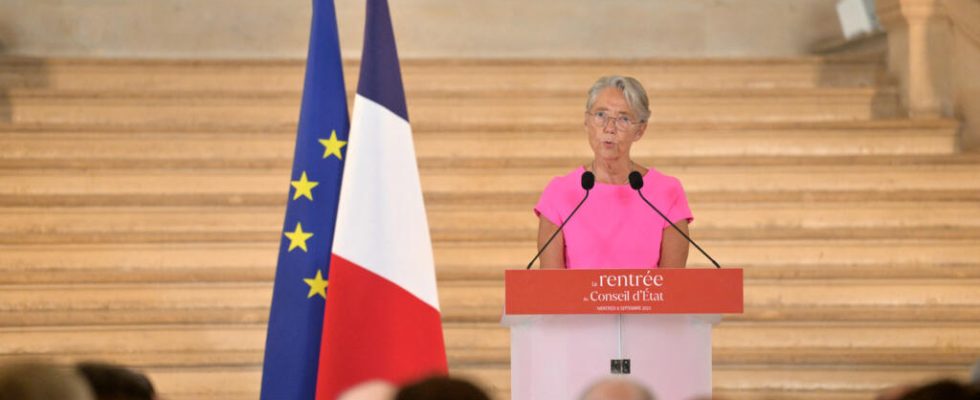All the political forces of New Caledonia met this Wednesday in Paris for the first time since 2019. After Emmanuel Macron’s visit there at the end of July, Prime Minister Élisabeth Borne launched a week of discussions between separatists and loyalists on the future of New Caledonia.
2 mins
While the separatists boycotted all dialogue since the third and last referendum on the independence of the french archipelagothey were gathered around the table of the Prime Minister this Wednesday, in the company of non-independentists.
A long-term task which was inaugurated by Élisabeth Borne who did not want cameras during her speech. The moment is however historic, as the Caledonian loyalist deputy, Philippe Dunoyer, said on his arrival at Matignon. ” It is a potentially historic day. It should, I hope in any case, mark the beginning of the plenary sequences, I would call them that so as not to use the word tripartite “, he explained at the microphone of Julien Chavannefrom the political service of RFI.
Separatists, loyalists and government in the same room, we had not seen that for more than two years. It was necessary to allow time to digest the result of the referendums, according to the separatist president of the Caledonian government, Louis Mapou. “ It’s a turning point since the 2021 referendum where we were more in the making, in a form of wait-and-see, each other, to gauge each other “, he confided while leaving the meeting.
It’s not tonight that we’re going to be able to find the forms of possible outcome of a historical subject.
The separatist president of the Caledonian government, Louis Mapou
Read alsoNew Caledonia: Emmanuel Macron invokes the paths of “pardon” and “the future” and promises a reform of the Constitution
Loyalists and separatists are optimistic: an agreement is possible in the days to come. Same story on the government side. The Prime Minister saw the possibility of a ” political agreement and put on the table a draft agreement ” ambitious “.
For a week, the Caledonian delegations will work on the text proposed by the government. And the main project is the institutional future of the archipelago, and in particular the exercise of “ right to self-determination “. ” We must […] guarantee the right to self-determination, but clearly define its future modalities, so as not to pose permanent, short-term uncertainty on the future of New Caledonia “said Ms. Borne.
The question of a Caledonian citizenship and the ” new status of the archipelago are also on the pile of files. And finally, the discussions must also focus on the future of the nickel industry, a weakened economic pillar of the archipelago. ” The challenge is to make New Caledonian nickel a sector of the future […]. The choices of the next few weeks will determine the fate of the three factories in the territory “, underlined the Prime Minister.
Heavy and sensitive subjects are therefore on the agenda for this week also marked by urgency because provincial elections and a referendum are scheduled for 2024.
Read alsoNew Caledonia in the trap of raw materials
(And with AFP)
